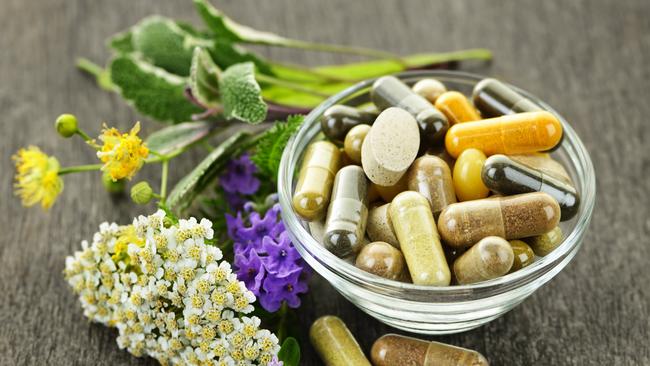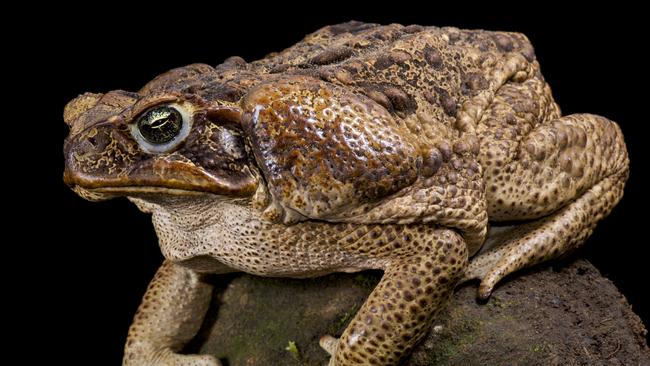Guardians of the Dead podcast | How ‘natural’ remedies can kill
An Adelaide woman who died after taking a herbal remedy to treat her IBS is just one of several shocking cases linked to the use of ‘natural’ medicines, outlined in the latest episode of the Guardians of the Dead podcast.
True Crime
Don't miss out on the headlines from True Crime. Followed categories will be added to My News.
WARNING: This podcast series features graphic descriptions of forensic pathology techniques, and descriptions of violent crimes, accidents and traumatic incidents that some listeners may find distressing or upsetting.
Trace elements of endangered animals, including snow leopard bones, have been discovered in ‘natural’ remedies that were being sold in Adelaide, a leading forensic pathologist and researcher has revealed.
Prof Roger Byard, Chair of Pathology at the University of Adelaide, spoke at length about the potential dangers, some of them fatal, of natural and Chinese herbal remedies in a new episode of the Guardians of the Dead podcast.
Prof Byard investigated the risks of herbal medicines in a 2010 research paper, published in the US Journal of Forensic Sciences, and found they could be deadly if consumed in large quantities, injected into the body or taken with incompatible prescription drugs.
“The thing about herbal medicines we’ve got to remember is that they’ve been used for thousands of years in thousands of communities and I think there’s no doubt that they can actually help in the treatment of disease.
“The difficulty now is that it’s not the village herbalist who’s been treating your family for 30 years and has no deaths or illnesses and has helped people.
LISTEN TO THE EPISODE BELOW
Please note: If you cannot see the audio player embedded here, try viewing this article via a web browser. Advertiser app users can listen to all the episodes in this series by selecting the “Podcasts” tab at the footer of app.
“People think with herbal preparations, they’re natural therefore they’re safe. Ebola fever is natural. You know, volcanoes are natural, they’re not safe,” Prof Byard says.
“There was a case we had in Adelaide where a woman had gone to a herbalist, she had irritable bowel (syndrome) and she took a preparation that contained 12 different herbs.
“And there’s a problem with herb/herb interaction and herb/drug interaction and it can be very variable and it can be different for you than it is for me. Anyway, she went into acute liver failure, had a transplant and then sadly died, because of these drugs.”
In another case, a man died after injecting a Chinese herbal tea, thinking it was amphetamine.
“His mate injected some and was quite ill. So he then injected more and died. Now the problem with herbal products is that looking for different types of herbs or organic preparations, it’s like a needle in a haystack, because there are just so many and they’re just so complicated.
“But one of the toxicologists at Forensic Science worked very hard on this case and he found bufotenine. Now that’s a toxic substance found in toad skin that is sometimes put into herbal preparations. It must be OK to drink it, but not to inject it.”

Prof Byard said the sector had become a “multi-billion dollar, multinational” industry that was insufficiently regulated to ensure public safety.
“There are regulations but it’s not nearly as stringent as it is for pharmaceutical drugs”.
It was also difficult to say how many people might be turning up in mortuaries as a direct result of consuming herbal medicines, because the data wasn’t being properly recorded.
“Essentially we don’t know, because we don’t check for them,” Prof Byard says.
“If I get a case, the police will write down, in great detail, all of the pharmaceutical drugs (that were in a person’s system).
“They won’t write down the herbals, because they think they’re ok. Now, herbal preparations can cause all sorts of difficulties; garlic can increase bleeding tendencies; kava can increase the respiratory depressant effects of anaesthesia. There are a whole range of different side-effects.”

Another major problem was that herbal medicines could sometimes be packed with ingredients not mentioned on the label; fillers, contaminants, even other pharmaceuticals.
“We did a study looking at herbal preparations that we obtained on the internet and the local market and we found that 53% of them had undisclosed ingredients, whether they were fillers, whether they were drugs and that’s a real concern.”
“Sometimes herbalists will change one herb for another herb and the reason for that may be two herbs may have the same name, so it’s a mistake, or the other herb is cheaper.
“This happened in Belgium. There was an outbreak of kidney failure and people died because they’d transposed one herb for another herb.
“We very disturbingly found a few years ago, snow leopard in a preparation, it was an anti-arthritic preparation we picked up at the Central Market in Adelaide.”

Prof Byard said the Therapeutic Goods Administration, which regulates the sale of medicines in Australia, had legislation to try to protect the public from potentially dangerous herbal remedies “but it’s not really legislation with teeth”.
“What needs to be done is more scientific testing needs to be done of these products. And if the manufacturers are making a lot of money out of it, well they can pay for it. That’s what drug companies do.
“And that’s all we’re saying with our investigations and our research here. Let’s make it as safe for the community as possible. People have a right to know what they’re taking and what the effects might be.”



